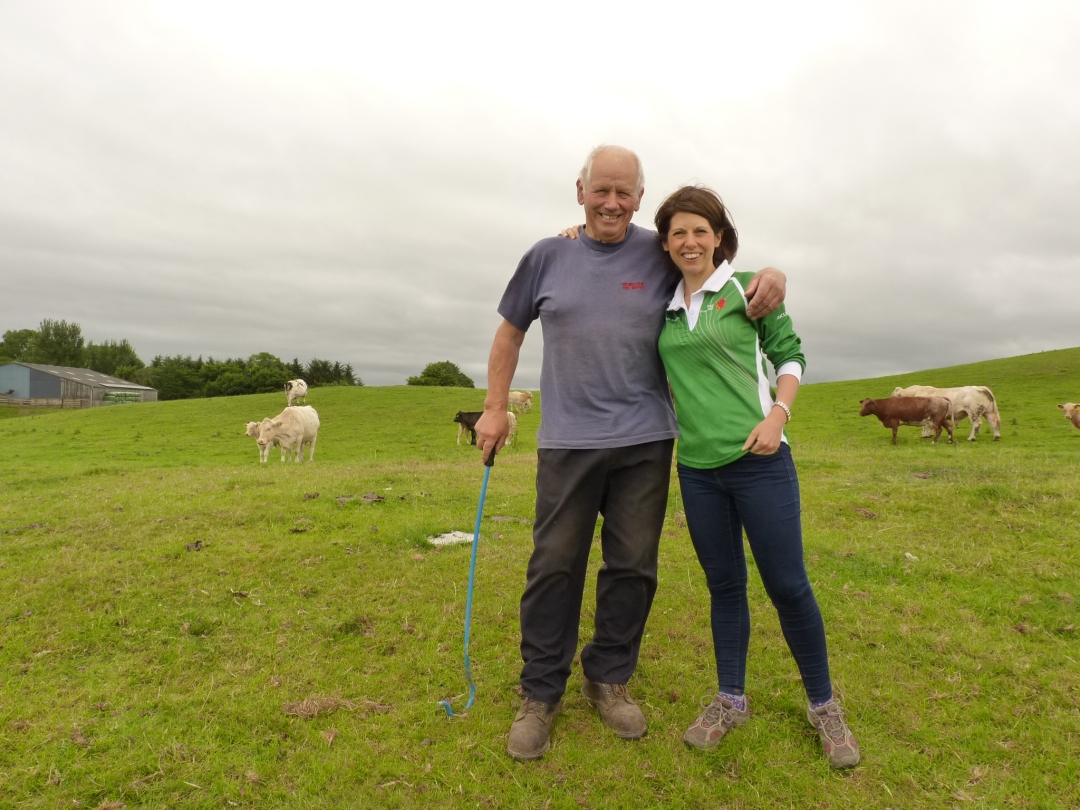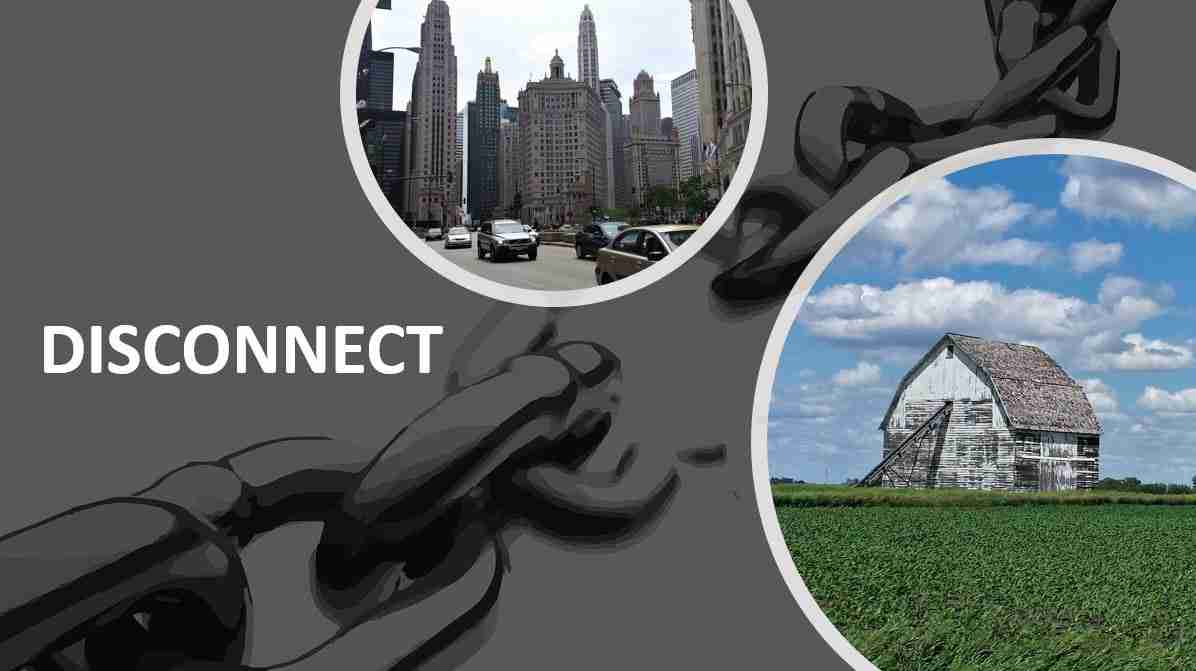Follow your family tree or dig deep enough into your DNA, and you will find a farmer.
In 2010 scientists discovered that the vast majority of European men are descended from the early farmers who spread westwards from the Middle East some 10,000 years ago, displacing hunter-gathering with their crops and animals.
In fascinating contrast, most female lines descend from hunter-gatherers, suggesting Neolithic women chose the newly arrived agriculturalists over indigenous hunter-gatherer men.
There was a time when being a farmer was very sexy indeed.
We Brits retained a close connection with agriculture and rural life right up until the 19th Century when two revolutions, both industrial and agricultural, sowed the seeds for disconnection.
Technological advances in agriculture dramatically increased productivity. Subsistence farming, which had kept people on the land for centuries, gave way to new, professionalised methods of production.
With more food being produced, and fewer hands needed to do it, people were free – or forced – to pursue new ways of making a living.
The general population shifted from relying on the land to produce their food, to relying on the farmer to do the job for them. A responsibility once shared by the many was handed to the few.
This process sped up rapidly during the Industrial Revolution following mass migration from the countryside to the factories and mills of Britain’s expanding towns and cities.
As the nation shifted from an agricultural economy to a manufacturing one, the people changed too. Sons and daughters of farmers became the parents of city dwellers. This was the beginning of The Disconnect.
The UK context
‘Disconnect’ | verb: to undo or break a connection | noun: an instance of being disconnected
The Disconnect between urban and rural communities exists all over the world, but to varying extents.
In some places it’s a noun, i.e. it’s already happened. It’s a state of being. In other countries, particularly in the developing world, it’s a verb. They are in the process of disconnecting, fuelled by economic growth, industrialisation and resulting urbanisation.
It is most visible in the developed economies of the West where most of the population live in post-industrial towns and cities. Depopulated rural areas, particularly those off the tourist trail, can be economically deprived and lacking in basic services and infrastructure.
Of the 65m people in the United Kingdom, just 17% live in a rural area and less than 1% work in agriculture. The total agricultural workforce, including farmers and farm managers, is 476,000. More people live in Edinburgh than work in farming throughout the whole of the UK.
Population demographics explain the physical disconnect between urban and rural Britain, but it goes much deeper than that. My own experience provides a good illustration:
I live in Easton – a metropolitan, multicultural, increasingly hipster part of Bristol where I can’t afford to buy a one-bedroom flat and a cup of coffee costs around £3.
My parents live near a small market town in one of the UK’s most rural counties. Shropshire does not have a city and only about 20 miles of motorway.
While there are some extremely affluent areas in the county, ours is not one of them. I could probably afford a three-bedroom house in my hometown of Oswestry and you can get an excellent coffee for £1.80.
The issues important to my friends and neighbours in Bristol are in direct contrast to those affecting my family in Shropshire.
On June 23rd 2016, the EU Referendum, every single person I know in Bristol voted Remain. Most of my friends and extended family in Shropshire backed Leave.
In the 2017 General Election, our Bristol West constituency went to Labour’s Thangam Debbonaire by a landslide, with one of the biggest majorities in the country.
Meanwhile, Owen Paterson, North Shropshire’s Conservative MP for 20 years, sailed through his sixth general election, increasing his share of the votes.
Town and country people live and think differently. Politically, culturally, socially.
Before we can examine the effect of this divide, and how it plays out in the media, we first have to acknowledge that it exists, and understand what it means.
Food doesn’t always mean farming
What about food? We all have to eat, regardless of whether we live on a farm or in a block of flats. Surely this is the umbilical cord, connecting people with the land?
Not necessarily.
‘Food and farming’ are often mentioned in the same sentence. But a connection to food does not automatically mean a connection to farming.
I’m yet to meet anyone else in my area of Bristol from an agricultural background, or with any particular interest in farming; yet food culture is flourishing.
Without even getting in the car, I can find a ready supply of fresh, top quality British produce. There are several whole food shops and delis within a 10 minute walk and, should I choose, I could eat organic, free range, pasture raised, vegetarian, vegan, gluten free or dairy free every day of the week.
Yet in my local shop, in the same refrigerator as the outdoor-reared bacon, is a full range of processed sausage, made with ‘EU pork’ and a long list of unpronounceable ingredients written in several different languages.
Like millions of other urban Brits my main connection to farming is through the food I buy in the shops. And whether that connection extends to knowing the origin of that food and how it was produced depends entirely on my budget.
Oswestry in Shropshire is not a foodie town. There are no charcuteries or vegan restaurants but, just three miles from the Welsh border, it is steeped in farming heritage.
A steady stream of Land Rovers towing stock trailers trundle through town every Wednesday on market day, a sculpture in the square depicts a Borderland farmer with his shepherd’s crook, and every outlying village has an agricultural show in the summer.
My point is, you can love food and know absolutely nothing about farming. Similarly you can farm your entire life and care little about foodie culture.
The simple fact that farms produce food and people eat food is not, on its own, enough to bridge The Disconnect.
My Nuffield study: ‘Help or Hinder: How the Mainstream Media Portrays Farming to the Public’ is available online. It explores how The Disconnect influences the way farming is reported and represented to the public. http://nuffieldinternational.org/live/Report/UK/2016/anna-jones



